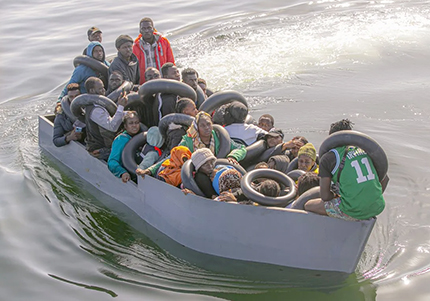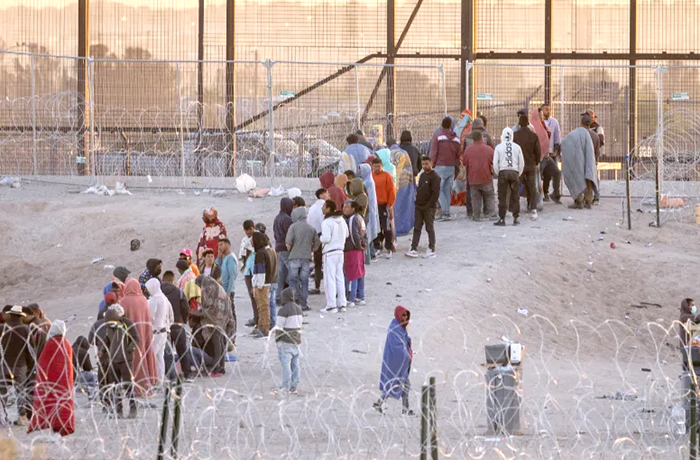 I’m currently in Kampala, Uganda, after spending the last month traveling. In two weeks, I’ll be heading back to the United States. It’s been quite an eventful time, with some unexpected surprises and even moments of drama, but I’m thankful for God’s protection throughout it all.
I’m currently in Kampala, Uganda, after spending the last month traveling. In two weeks, I’ll be heading back to the United States. It’s been quite an eventful time, with some unexpected surprises and even moments of drama, but I’m thankful for God’s protection throughout it all.
Most of the surprises have happened since I arrived in Uganda, though even my experience passing through immigrations in Sweden four weeks ago was a bit of a shock. The immigration officer was unusually grim and stern.
“Why are you coming to Sweden?” he asked.
“To visit my kids and grandkids,” I responded.
“What are their names and where do they live?”
This was something I’d never been asked in decades of traveling through Scandinavia. I provided their names.
“What are their addresses?”
I’d been awake for over 30 hours, so I was beginning to feel rattled. I knew the towns they lived in but not the street addresses. The officer looked it all up on his computer. I showed him my Airbnb bookings and onward tickets, and after a tense moment, he finally allowed me to pass.
In hindsight, I think about the political climate in Europe—especially the ongoing tensions with Russia and the immigrant crisis. “Hybrid war” is a term now used to describe the wide-ranging Russian aggression across Europe. The situation, from underwater cable cutting in the Baltic Sea to other provocations, has made Europe more anxious than I’ve ever experienced. And, of course, the struggles of Ukraine continue.
This past week in Uganda has brought its own series of shocks, setbacks, and challenges. But through it all, I’ve felt God’s hand of protection, and I know it could have been much worse. I arrived here expecting an Asian friend to join me in two days. We were scheduled to record a video series on my site “Prophecies of Daniel” in his language.
However, late on the night he was to fly out, I received a call from him at the airport. Despite having all his documents in order—including his passport, papers, and Uganda visa—he was not allowed to board.  The flight left without him. The next morning, I got a text saying he’d been assaulted and robbed at gunpoint while trying to catch another flight.
The flight left without him. The next morning, I got a text saying he’d been assaulted and robbed at gunpoint while trying to catch another flight.
Thankfully, he is now back home, safe and well. He tried another airport, but it turned out to be the same situation—bribes demanded with no guarantee he’d be able to fly out. We’re now exploring different ways to proceed with our work.
This experience has been an eye-opener. My friend is young, Christian, educated, and of good character. In talking with him and learning about his background, I’ve come to realize that he’s just one of many in his country—and across many countries—desperately trying to get abroad for a better life.
Is it an economic issue? In part, yes. But what I’ve witnessed this past week is a clear example of how many countries are on the brink of becoming “failed states”.
A failed state doesn’t have to look like Somalia. When corruption is rampant, when government incompetence is the norm, and when you can’t predict what will go wrong next, it’s easy to understand why so many people are desperate to leave for a better future. Experiencing this with my friend has given me a fresh perspective I didn’t have before.
At the same time, I’m from Texas, where for years, wave after wave of immigrants—thousands every day—have crossed the border without visas or authorization. It’s one of the greatest dilemmas of our time. Europe is facing a similar challenge.
And of course it should be added, not all immigrants are of the same type as my friend who was trying to fly here to Uganda. Immigrants who are criminals should be deported.
What’s the solution? A quick fix? I don’t have one. But I believe it boils down to two things: compassion and good government. I won’t apologize for quoting the ancients, but over 3,000 years ago, God told the Jews through Moses: “Love the stranger, for you were strangers in the land of Egypt” (Deuteronomy 10:19).
At the same time, it requires governments inspired by God to create effective, fair immigration policies that can yield good results for as many people as possible. This can be done. With birth rates plummeting in many industrialized countries, it’s known that they need more people to sustain their economies.
But most of us aren’t in positions of power to influence large-scale decisions about immigration. We’re just regular people, going about our daily lives. So, what can we do? We can help immigrants who are near us, as the Lord leads. In our conversations, we can resist being swept up in anti-immigrant rhetoric. And, of course, we can ask the Lord to help us remain fair-minded, as the immigrant crisis has often placed tremendous hardship on the citizens of countries that are hosting millions of newcomers.
Please join me in praying for Godly leadership to rise up and meet this crisis.
Let’s pray for the millions of sincere people living in extreme poverty, desperate to escape their circumstances, much like our forefathers did when they became immigrants.
And let’s pray for ourselves that we can be loving, compassionate citizens to those living among us during these trying times.
